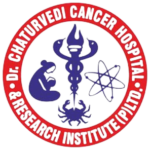Pathology is a medical specialty focused on the study and diagnosis of disease through the examination of tissues, organs, bodily fluids, and cells. Pathologists are medical doctors who specialize in pathology and play a crucial role in diagnosing and understanding various diseases, including cancer. Here are some key aspects of pathology:
Anatomic Pathology: Anatomic pathology involves the examination of tissues and organs removed during surgery (surgical pathology) or obtained through biopsy (cytopathology). Pathologists examine tissue samples under a microscope to identify abnormalities, such as tumors, inflammation, infection, and structural changes indicative of disease. Anatomic pathology helps guide treatment decisions and prognosis by providing accurate diagnoses.
Clinical Pathology: Clinical pathology focuses on the analysis of bodily fluids and other specimens, such as blood, urine, and cerebrospinal fluid. Clinical pathologists perform tests to assess blood cell counts, chemistry, coagulation, immunology, microbiology, and molecular biology to aid in the diagnosis and monitoring of various diseases, including infections, autoimmune disorders, and metabolic conditions.
Molecular Pathology: Molecular pathology involves the study of genetic and molecular changes in cells and tissues to understand disease processes and guide personalized treatment strategies. Molecular pathologists use techniques such as polymerase chain reaction (PCR), fluorescence in situ hybridization (FISH), and next-generation sequencing (NGS) to analyze DNA, RNA, and protein markers associated with specific diseases, including cancer.
Forensic Pathology: Forensic pathology is a subspecialty of pathology that focuses on determining the cause and manner of death in cases of sudden, unexpected, or suspicious deaths. Forensic pathologists perform autopsies, examine evidence, and provide expert testimony in legal proceedings to assist in criminal investigations and legal proceedings.
Research and Education: Pathologists play a critical role in medical research and education. They contribute to the advancement of medical knowledge by conducting research studies, publishing scientific articles, and participating in academic activities. Pathologists also train medical students, residents, and fellows in pathology and related fields to prepare the next generation of healthcare professionals.
Multidisciplinary Collaboration: Pathologists work closely with other healthcare professionals, including clinicians, surgeons, radiologists, oncologists, and laboratory technologists, to provide comprehensive patient care. They contribute to multidisciplinary team meetings, tumor boards, and clinical conferences to discuss complex cases, develop treatment plans, and monitor patient outcomes.



